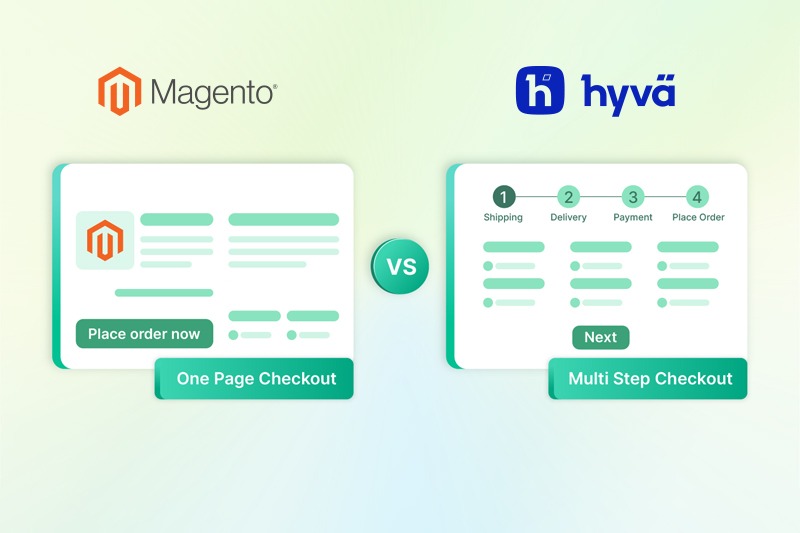
SEO at Scale on Magento: Canonicals, Faceted Nav, and Indexation Hygiene
by Rahul Basu
September 8,2025
Magento is one of the most powerful eCommerce platforms in the world. Its scalability, flexibility, and vast customization options make it the preferred choice for businesses that want to grow from hundreds to hundreds of thousands of SKUs. But this very scalability also introduces one of the biggest challenges for eCommerce brands: SEO at scale.
For online retailers, being invisible on search engines means losing revenue to competitors. And when you run a large Magento catalogue, SEO issues like duplicate content, bloated indexation, and poor crawl efficiency can silently damage rankings.
As a Magento agency in Berlin, Ingold Solutions specializes in helping brands turn Magento’s flexibility into SEO advantages. From canonical tags to faceted navigation and indexation hygiene, we ensure that businesses not only scale their catalogues but also their search visibility.
This blog dives deep into how Magento SEO works at scale and how retailers can prevent technical pitfalls from holding back organic growth.
The Core SEO Challenge with Magento
Magento is designed for flexibility—attributes, layered navigation, and product variants can be modelled in infinite ways. But search engines don’t always interpret this flexibility well. The most common challenges include:- Duplicate Content: Multiple URLs with identical or near-identical content (e.g., /red-dress.html vs /dress.html?color=red).
- Faceted Navigation Issues: Filters for size, colour, price, etc., often create thousands of crawlable URLs that waste crawl budget.
- Pagination Confusion: Poorly implemented pagination can split ranking signals across multiple pages.
- Index Bloat: Search engines index irrelevant, low-value pages (out-of-stock products, filter pages, session parameters).
- Canonicalization Errors: Without correct canonical tags, search engines struggle to understand the “main” page.
Canonical Tags: The Backbone of Magento SEO
Canonical tags tell search engines which version of a page should be considered the “master” or primary page. In Magento, this becomes critical because the same product may exist under multiple URLs.Why Canonicals Matter in Magento
- Product Variants: Different URLs generated by size, colour, or material attributes.
- Category Paths: /shoes/running/adidas.html and /adidas/shoes/running.html may both exist.
- Tracking Parameters: Marketing campaigns add parameters like ?utm_source=google.
Best Practices for Canonicals in Magento
- Enable Canonical Tags in Magento Admin
- Navigate to Stores > Configuration > Catalogue > Catalogue > Search Engine Optimization.
- Enable Use Canonical Link Meta Tag For Products and Categories.
- Canonicalize Variants to Parent Products
- If “red dress” and “blue dress” are just colour variants, canonicalize to the main product page.
- Avoid Self-Referential Mistakes
- Magento sometimes generates self-referential canonicals with parameters included. Always ensure canonical tags point to the clean URL.
- Custom Canonical Rules for Complex Catalogues
- Use custom modules or third-party SEO extensions to manage advanced canonicalization logic (e.g., handling multiple categories).
Faceted Navigation: A Double-Edged Sword
Magento’s layered navigation is one of its strongest features for user experience. Shoppers can filter products by size, color, price, material, brand, and more. But for SEO, faceted navigation can be a nightmare.The Faceted Navigation Problem
Each filter creates a new URL. For example:- /shoes.html?color=red
- /shoes.html?color=red&size=42
- /shoes.html?color=red&size=42&price=100-200
Solutions for Faceted Navigation in Magento
- Robots.txt Directives
- Block faceted parameters (?color=, ?size=, ?price=) in robots.txt.
- Meta Robots = Noindex
- Add noindex, follow meta tags to filter pages you don’t want in the index.
- Canonicalization
- Canonical all filter combinations back to the parent category page.
- Selective Indexation
- If some filter pages have high search demand (e.g., “red wedding shoes”), allow them to be indexed while blocking the rest.
- Use Search-Friendly Filters
- Replace query parameters with clean URLs (e.g., /shoes/red/size-42) but manage them carefully with canonicals and robots directives.
Indexation Hygiene: Keeping Search Engines Focused
Indexation hygiene ensures that only high-value pages (categories, products, landing pages) are crawled and indexed.Common Indexation Issues in Magento
- Out-of-Stock Products: Search engines waste time crawling unavailable items.
- Session IDs in URLs: Create endless duplicate versions of the same page.
- Internal Search Pages: Should never be indexed (/catalogsearch/result/?q=).
- Sorting & Pagination Parameters: Create duplicates (?dir=asc, ?p=2).
Best Practices for Indexation Hygiene
- Robots.txt Optimization
- Disallow search, cart, checkout, and account pages.
- Example:
- Disallow: /catalogsearch/
- Disallow: /checkout/
- Disallow: /customer/
- Noindex Low-Value Pages
- Apply noindex to wishlists, filtered results, and duplicate pages.
- Dynamic Sitemap Generation
- Keep only categories, products, and CMS pages you want indexed.
- Update automatically to reflect stock availability.
- Handle Pagination Properly
- Use rel="next" and rel="prev" attributes for paginated category pages.
- Audit Regularly with Search Console & Screaming Frog
- Remove indexed pages that shouldn’t be in SERPs.
Advanced SEO for Magento at Scale
Beyond canonicals, faceted navigation, and indexation hygiene, scaling SEO on Magento requires advanced techniques:- Structured Data Markup – Add JSON-LD for products, reviews, and breadcrumbs.
- Performance Tuning – Improve Core Web Vitals with caching, CDNs, and image optimization.
- Log File Analysis – Check what search engines are actually crawling.
- International SEO – Use hreflang tags for multi-country Magento stores.
Real-World Example: Fixing SEO at Scale for a Retailer
A fashion retailer in Berlin came to Ingold Solutions with 100,000+ SKUs. Their SEO problems included:- 1.2 million indexed URLs due to faceted navigation.
- Duplicate product URLs with tracking parameters.
- Slow site speed affecting Core Web Vitals.
Our Solution
- Implemented custom canonicalization rules.
- Blocked unnecessary filters in robots.txt.
- Set up automated XML sitemaps and noindex rules.
- Optimized server performance with Varnish + CDN.
Results
- Indexed pages reduced from 1.2M to 120K.
- Organic traffic increased by 35% in six months.
- Improved ranking for competitive category keywords like “wedding shoes Berlin.”





